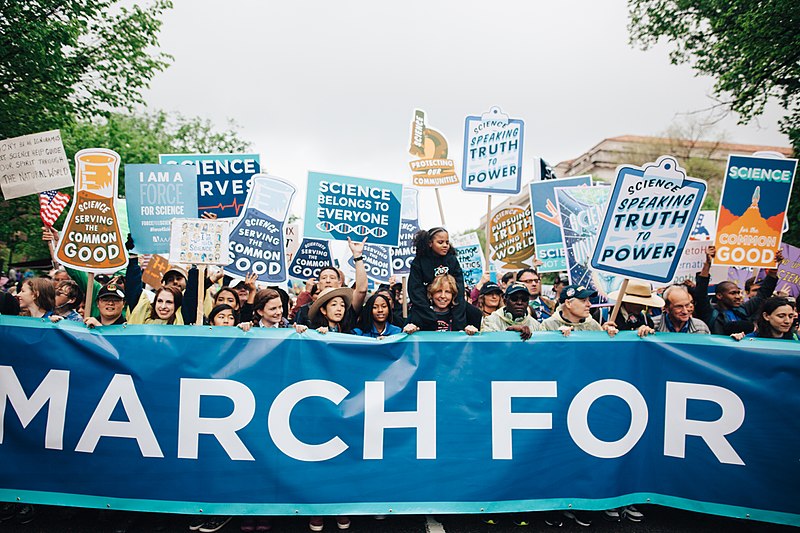As scientists seek greater engagement in politics and policymaking, it appears women may be taking the lead.
As part of a recent Bioss survey, we asked nearly 200 scientists about their political and community involvement in the past two years. In almost every category, female scientists were more engaged.
Female scientists were statistically more likely to have spoken at a public event for a non-scientific audience, to have participated in a political event or rally, or to have served as a member of a community organization. They were also somewhat more likely to have contacted a governmental official or to have made a political contribution.

Male scientists, on the other hand, were more likely to have written an op-ed or other public article or to have participated in none of the events listed.
The idea that women have prominent participation in recent political movements should come as little surprise given the widespread success of both the Women’s March and the March for Science. Grassroots organizations such as 500 Women Scientists have gained greater footing since the November 2016 election.
“In this new era of anti-science and misinformation, we as women scientists re-affirm our commitment to build a more inclusive society and scientific enterprise,” writes the organization in its pledge. “Across the globe, women in science face discrimination, unequal pay, and reduced opportunities. Our work to overcome the longer-term degradation of the role science plays in society did not start with this election, but this election has re-ignited our efforts.”
However, the degree to which women’s participation differs from male colleagues is perhaps even more than anticipated. For instance, women’s participation in political events and rallies was nearly three times that of men in our survey — 31 percent versus 12 percent.
While the research community has long called for increased participation of scientists in the political realm, some would argue that current systems (e.g., tenure track for faculty) do not support or provide opportunities for early-career researchers to build the necessary skills to get involved outside of the lab.
Another concern until recently has been the perception that scientists are detached from the social environment, unable to reconcile facts and data with public opinion and skepticism. However, with the recent uptick in participation — especially among younger scientists — it appears the tide may be turning, and scientists may be embracing a more public role in government as both advisors and candidates.
As one survey respondent wrote, “I would fully support more scientists running for public office. Though we have to be careful for scientists to be seen as bearers of facts, we should also be allowed to have opinions, especially if we can support those opinions with facts.”
Image courtesy of Wikimedia Commons
